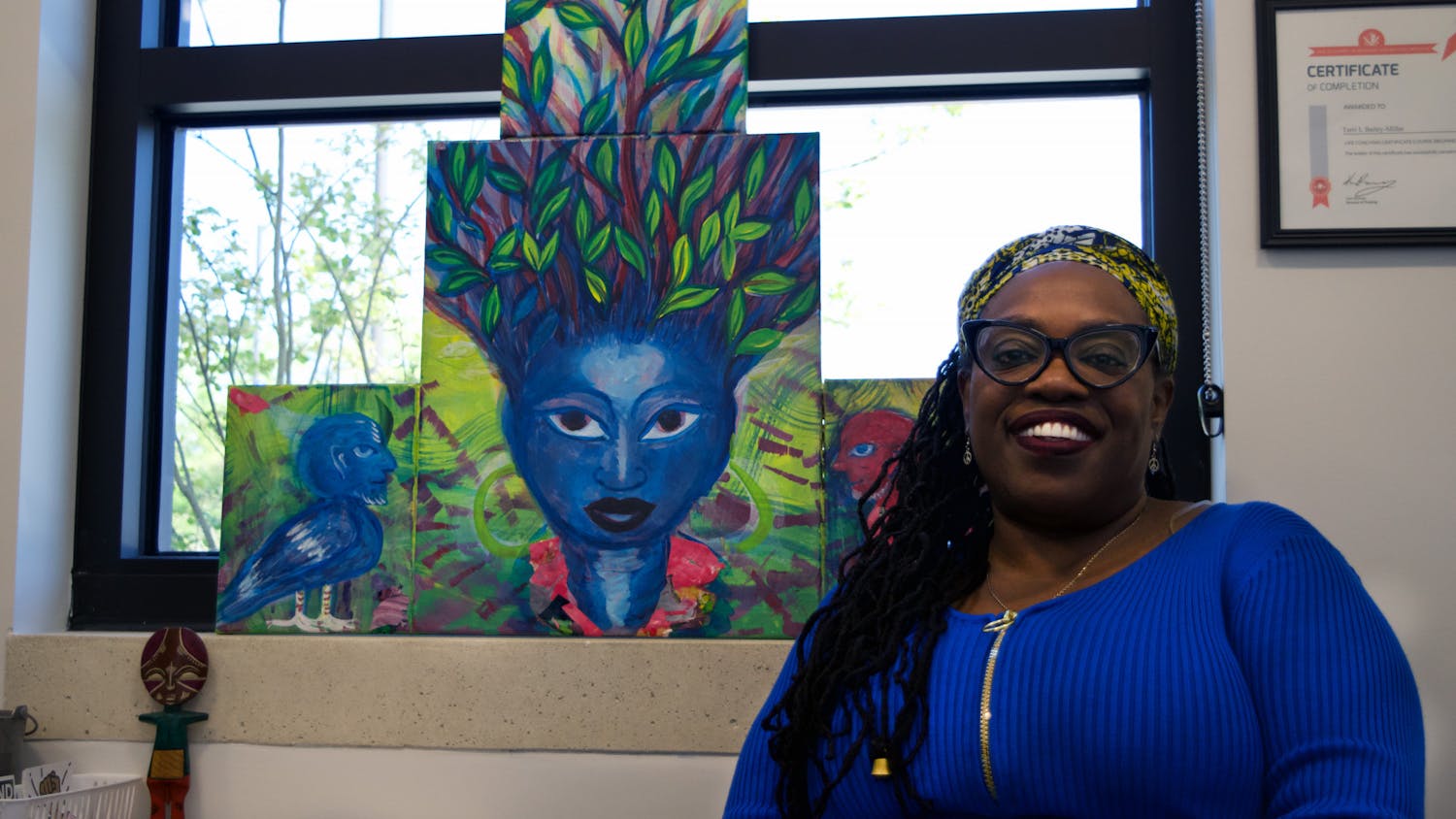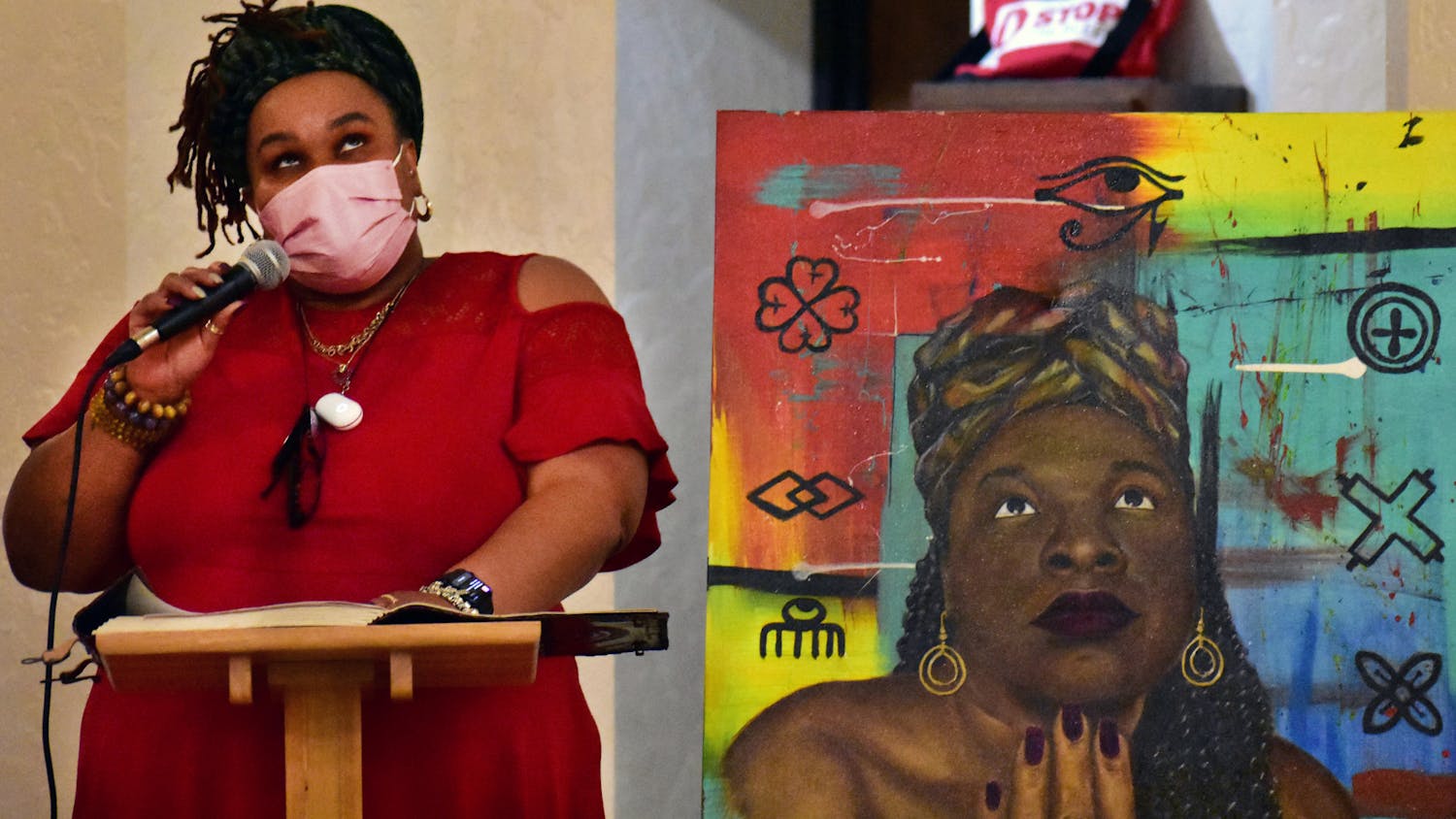Last week, writers, readers and rhyme enthusiasts alike celebrated National Poetry Day. They shared short verses on social media and encouraged others to pick up their favorite collections. Twitter especially lit up with screenshots and quotations from poets as varied as Maya Angelou and Rupi Kaur. It made me think: Isn’t it incredible that there really is a poem out there for everyone?
I’ve always loved poetry for the way it simultaneously conveys messages and moods. As beautiful as prose gets, it never seems to hit this level of expression. I wouldn’t say I’m particularly good at creating or understanding poetry, but I know it’s something special. I still have a lot to learn about poetry if I ever want to get better at either of these skills. Regardless, I think we all have lessons to take away from poetry itself, and through this column, I’m going to try to tease out some of the wisdom of this timeless art.
I want to begin with a short tweet from Lin-Manuel Miranda, the creator and star of the play “Hamilton.” In the last week or so, Twitter began rolling out a new feature among a select group of users: the 280-character tweet, up from it’s standard 140. One user lamented the fact that Miranda was not part of the chosen group and therefore couldn’t write more than 140 characters. Miranda replied that he probably would’ve quit Twitter: “Ya don’t add syllables to the haiku, or limerick, or sestina. The fun is what you can do within the form.”
And here we have our first lesson from poetry, straight from a lyrical genius himself. We can create innovative works of art (and have fun doing it) even while working within a set of boundaries. In fact, part of the beauty of poetry — and life itself — comes from what we build with what we have. Poetry teaches us not to take anything for granted, even if it’s just one syllable; we can derive power and meaning from a single sound or a lone letter. Working within a form need not limit us for we can construct beauty from seemingly small sources.
Poetry also demonstrates to us the commonalities of human experience. A good poem is like a best friend wrapping her arm around your shoulders and saying, “Yeah, me too.” We learn we are not alone in our joys, our tragedies or our mundanities when we read another person’s stanzas. A poem can be unique from others in its word choice or rhyme scheme, but it can still hit you like you wrote it yourself.
Poetry is what allows the human experience to go on living even after our bodies have withered away. Poetry, in essence, is immortality. Like other works of art, a poem can survive centuries, resonating with readers and audiences even as civilizations crumble and new societies take their places. Just look at Homer’s “Odyssey.”
Poetry reminds us that, yes, we are fickle creatures limited by the scope of our human bodies and brains, but we are also beautiful with strange problems and unbridled delights. Our art can remain on this world even after we’ve left it, and future humans can read about our trials and tribulations for years to come.
I’m certainly no poetry expert. I’ve still got a lot more poetry I need to read (see: Eve Ewing’s “Electric Arches” and Rumi’s “The Essential Rumi”). But that’s the magic about one’s poetry education — it never has to stop, and it’s always got at least one more thing to teach us. Let’s celebrate poetry every day.
Mia Gettenberg is a UF criminology and philosophy senior. Her column appears on Mondays.





